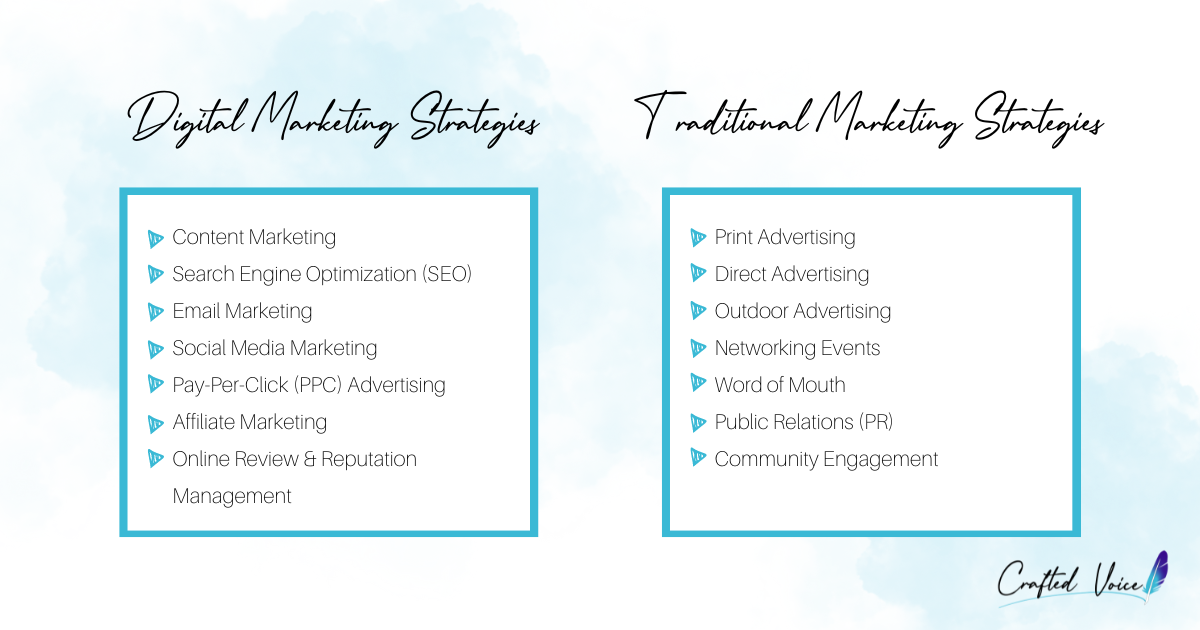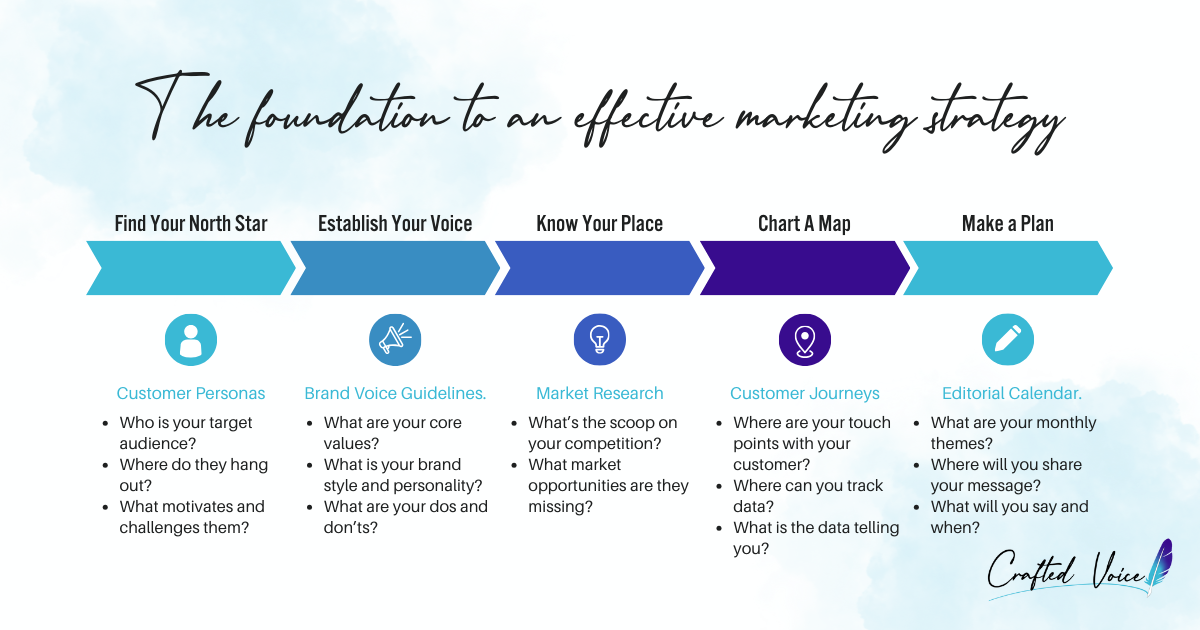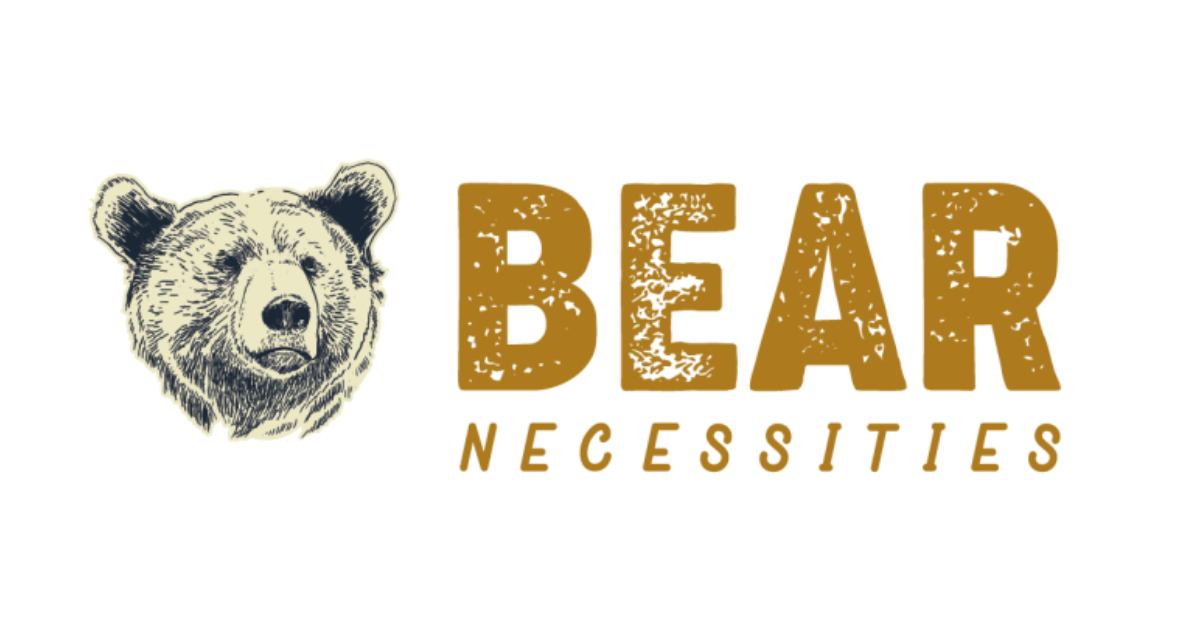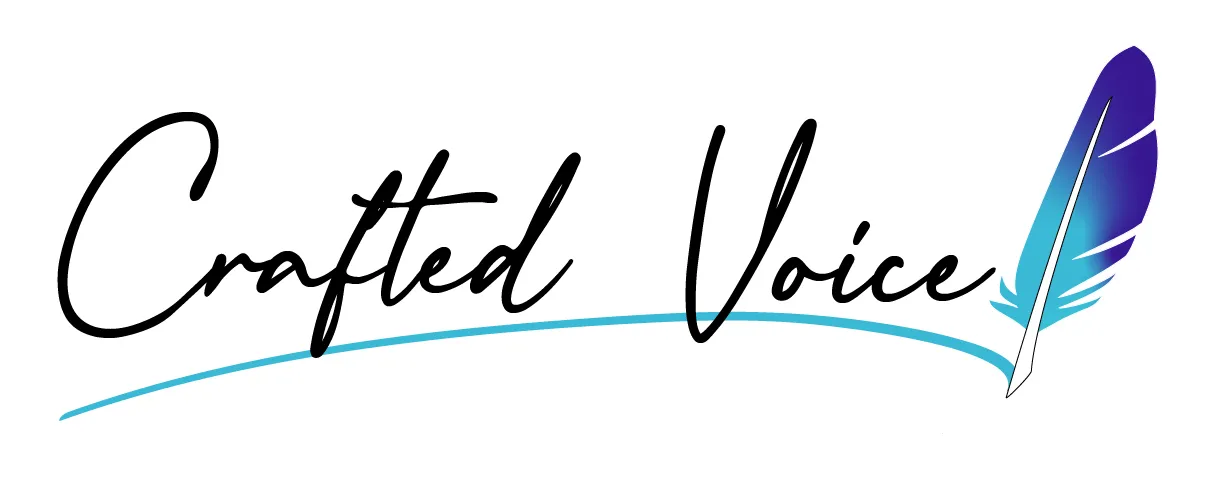Best Marketing Strategies Used By Companies
Explore the best marketing strategies for small businesses and how you can leverage marketing to reach your business goals.
Marketing would be easy if….
… I had more money.
…I had more time.
…I could just get in front of the right customers.
…I knew what I was doing.
How would YOU complete this sentence? When it comes to marketing for business owners, there are so many potential problems, solutions, and bumps along the way that you might feel stuck without any idea what to do next.
Marketing is important for small businesses to thrive, and doesn’t have to be stressful or overwhelming. Sometimes, the best place to start is with a high level overview of your options to consider what might be the best option for you and your business.
What are the marketing strategies used by companies?

There are hundreds of ways to market your business, but the key is to determine which one is the best for you (your budget, time, expertise, and workflow) and your customers. Below are common types of marketing that provide a starting point for brainstorming which marketing strategy is best for your business. Click on the plus signs below to expand the section.
Here is a quick list of many possible digital marketing strategies:
- Content Marketing: This strategy focuses on producing a high-quality website, blog posts, articles, newsletters, videos, infographics, or podcasts to engage and educate your target audience.
- Search Engine Optimization (SEO): This technique optimizes your website content and structure to improve visibility in search engine results.
- Email Marketing: By building an email list and sending regular newsletters, promotions, and updates to subscribers, you can build relationships with your customers.
- Social Media Marketing: This marketing method connects brands with customers, through sharing relevant information and running targeted ads.
- Pay-Per-Click (PPC) Advertising: If you run paid ads on search engines (such as Google Ads) or on social media platforms, it can drive traffic to your website, increase your leads, and boost sales.
- Affiliate Marketing: This marketing method encourages partnering with influencers or other businesses to promote products or services in exchange for a commission on sales.
- Online Reviews and Reputation Management: This strategy encourages satisfied customers to leave positive reviews on review sites like Google My Business, Yelp, or Trustpilot. This allows your brand to manage its online reputation effectively.
Here is a quick list of many possible traditional marketing strategies:
- Print Advertising: Place ads in newspapers, magazines, brochures, or local publications.
- Direct Mail: Send physical mailers, postcards, or catalogs to targeted mailing lists.
- Outdoor Advertising: Utilize billboards, posters, banners, or vehicle wraps to reach local audiences.
- Networking Events: Attend industry conferences, trade shows, or community events to connect with potential customers and partners.
- Word of Mouth: Encourage satisfied customers to refer others through referral programs or incentives.
- Public Relations (PR): Cultivate relationships with journalists, bloggers, or influencers to earn media coverage and increase brand visibility.
- Community Engagement: Sponsor or participate in local events, fundraisers, or charity initiatives to support the community and enhance brand reputation.
What are the marketing strategies for small businesses?
Reviewing a general list of marketing strategies is helpful, but it’s important to understand that the best marketing strategies for small business aren’t necessarily the same that larger companies use to find success.
In addition to the list above, local marketing is incredibly important for small businesses.
Prioritize local SEO, especially if you own a brick-and-mortar business targeting local customers. Optimizing for local keywords and claiming a Google My Business listing can improve visibility in local search results.
Embrace community engagement by participating in local events, sponsoring community initiatives, or collaborating with other local businesses can help build relationships and brand loyalty within the community.
Put your face to your brand through images, videos, and by just being available to your customers. Small businesses thrive on personal connections.
In the same vein, establish meaningful loyalty programs (not just to track spending… we see you, big box stores!) but to reward loyal customers with discounts, exclusive offers, or loyalty points. This can encourage repeat purchases, increase customer retention, and strengthen organic word of mouth referrals.
Ultimately, the best marketing strategies for small businesses are those that align with their goals, target audience, and resources while providing the most effective return on investment. It’s essential to continuously evaluate and refine strategies based on performance and market dynamics.
What are the five common marketing strategies?
The five most common marketing strategies that are widely used across industries and businesses include:
- Advertising
- Content Marketing
- Social Media Marketing
- Email Marketing
- Search Engine Optimization (SEO)
These five marketing strategies are foundational for many businesses and are often used in combination to create comprehensive marketing campaigns that effectively reach and engage target audiences.
What are the top 5 marketing strategies?

Reviewing the best marketing strategies used by companies can inspire your own creativity when considering what methods will be best for you and your business goals. Here are our top 5 favorite marketing strategies:
- Setting your Customer Personas as your North Star.
- Establishing Brand Voice Guidelines to serve as anchor language for all marketing messaging.
- Conducting thorough competitor analysis and target audience research to acknowledge your accurate position in the market, and locate your customers (so you know where to find them!).
- Charting Customer Journey Maps to pinpoint all customer touchpoints and messaging opportunities.
- Drafting an Editorial Calendar to put organization and flow between marketing campaigns.
If you follow these steps, you will build a solid foundation for your business’ marketing and communications strategy. Need help with step 1? Crafted Voice Academy offers an affordable, on-demand e-course on how to build data-driven customer personas. Contact us to learn more about the course for for details on our do-it-for-you options.
What are the 7 effective marketing strategies?
Just because a marketing strategy is popular, doesn’t mean it will be an effective strategy for your business. While an easy list of the 7 types of marketing strategies that are best for you would be a great list to uncover on the internet, it’s best to focus on the “effectiveness” of any marketing strategy examples.
Great marketers are big fans of data-driven decisions. Regularly analyzing marketing metrics and adjusting strategies based on performance can help optimize marketing efforts and maximize ROI. While “analytics and measurement” may seem daunting, I can tell you as a former hater of data…I’ve grown to love data analytics because of the story those numbers tell.
For example: are my customers suddenly falling off the face of the planet after a particular email that I sent to them? The data can tell me why and provide an opportunity for me to experiment with solutions. If I change that email content, and then see my numbers start to improve, then I know I’m more effective in my marketing efforts than before.
For an effective marketing strategy, consider:
- Website Analytics: Use tools like Google Analytics to track website traffic, user behavior, and conversion metrics.
- Social Media Insights: Monitor social media metrics (e.g., engagement, reach, conversions) to evaluate the effectiveness of social media marketing efforts.
- Email Analytics: Analyze email open rates, click-through rates, and conversion rates to optimize email marketing campaigns.
- Sales and CRM Data: Track sales performance, customer acquisition costs, and customer lifetime value to assess overall marketing ROI.
What are the 4 marketing strategies with examples?
If you are looking for great marketing campaigns to boost your creativity, then look no further. Here are four companies with good marketing strategies that effectively executive their campaigns.

U.S. National Park Service
The U.S. National Park Service is my absolute favorite example of a solid, long-game marketing strategy, because they clearly have established brand voice guidelines for their social media presence. They infuse humor with approachability, cultural truth with light heartedness. They have brought visibility to the national parks and have grown their social media following on Instagram to over 5.8 million at the time of this writing. And that audience is fully engaged. For a government agency, that’s incredibly impressive!

Callosum & Colorado Parks and Wildlife
Callosum, a marketing agency specializing in outdoor and purpose-driven brands, partnered with Crafted Voice Communications on a project for Colorado Parks & Wildlife to inspire human behavior change to lessen bear conflict in a targeted geographic area. The team created customer personas and customer journey maps that resulted in innovative solutions grounded in data, setting the stage for success and sustained impact.

JenniferJ NIA
Jennifer Johnson owns and operates 2 Network in Action franchises in Houston, Texas. Not only is her marketing incredibly grounded in a strong brand presence and voice, she uses event marketing to promote her group memberships. Each month, she holds a Virtual Networking Event that is completely free and open to anyone (not just her members). This establishes her as THE networking guru while also gives anyone in attendance a sneak peek of what it would be like to be a member in her group.

The Wilbanks Consulting Group
The Wilbanks Consulting Group is a career coaching agency that used the power of early bird incentives to grow interest in a new group coaching initiative, WCG Impact Accelerator. Within the first 2 weeks of open enrollment, the earliest of registrants received $100 off the program cost and received a free gift from WCG’s online shop. The company bundled this incentive with a free webinar during the early bird window to tease out the content of the group coaching sessions, giving potential customers yet another reason to say yes!
Want even more creative ideas to market your business? Sign up for our free creative marketing methods resource (yes, this is a lead magnet!)
These unique marketing strategies used by companies provide a great jumping off point to being your own marketing brainstorm and research.
What are the 3 global marketing strategies?
Globally, there are three marketing strategies that are used by both businesses large and small:
Branding and Visual Identity. Your business is nothing without an identity that makes it stand out in the market and against the competition. To establish a strong presence, companies:
- Develop a memorable logo and consistent branding materials (business cards, letterheads, packaging, ads, etc.) to convey their brand identity.
- Ensure that their website design aligns with their brand identity and provides a positive user experience.
Customer Relationship Management (CRM). This marketing theory uses a combination of the following to manage and track their customer relationships in order to track their experience with their brand and target messages accordingly. They do this through:
- Email Newsletters: Regularly sending personalized emails to customers with relevant content, promotions, or updates.
- Loyalty Programs: Rewarding loyal customers with discounts, exclusive offers, or VIP perks to encourage repeat purchases and referrals.
- Customer Feedback and Reviews: Soliciting feedback from customers through surveys, reviews, or testimonials to improve products, services, and customer experiences.
Data-Driven Decision Making Through Analytics and Measurement. You can publish the most wonderful story, but if it is falling on deaf ears because the wrong audience is hearing it, or it’s being conveyed poorly, it won’t convert to sales.
- Use tools like Google Analytics to track website traffic, user behavior, and conversion metrics.
- Monitor social media metrics (engagement, reach, conversions, etc.) to evaluate the effectiveness of social media marketing efforts.
- Analyze email open rates, click-through rates, and conversion rates to optimize email marketing campaigns.
- Track sales performance, customer acquisition costs, and customer lifetime value to assess overall marketing ROI.
These strategies are used across the board for good reason. They will set up any company for success in marketing.
What are the 5 Ps of marketing strategy
The most popular of strategic marketing theories is perhaps the 5Ps: Product, Price, Place, Promotion, and People. By definition, these are fundamental principles that businesses use to develop and execute effective marketing strategies.
Product
This is what you’re selling—whether it’s a physical thing like a hair dryer or a service like consulting. It’s all about what your customers are buying from you and what makes it special, like its features, quality, and how it looks.
Price
This is what you’re selling—whether it’s a physical thing like a hair dryer or a service like consulting. It’s all about what your customers are buying from you and what makes it special, like its features, quality, and how it looks.
Place
This is what you’re selling—whether it’s a physical thing like a hair dryer or a service like consulting. It’s all about what your customers are buying from you and what makes it special, like its features, quality, and how it looks.
Promotion
This is all the stuff you do to get the word out about your product or service. It includes things like advertising, telling people about special deals, and getting media outlets to talk about you. The goal is to get people interested in what you’re selling and convince them to buy it.
People
This is all about the people who are involved in your business—both your customers and your employees. You want to make sure your that both your customers and employees are happy. It can make a big difference in your business success.
Secure A Trusted Marketing Partner
Determining the best marketing strategy for your business can feel like you are trying to find a needle in a haystack, especially if “marketing” isn’t your strength. For small businesses, you don’t always have the luxury of both time and money to spend on creating a marketing plan that is both effective and budget friendly. Crafted Voice Communications is a small business, just like yours, that specializes in helping small businesses establish a solid marketing foundation without breaking the bank. Set up a consultation with our team to see if we are a good fit for you.
Reach Us
We’re proud to serve business owners where we call home in the greater Columbus, Ohio metropolitan area. We also serve clients from coast-to-coast.
Together, let’s craft your story and captivate your audience!
Hilliard, Ohio
